Wooden utensils are a staple in many kitchens, cherished for their durability and the unique charm they bring to cooking. However, cleaning them properly is crucial to ensure they last long and remain safe for use. Here are five right ways and three wrong ways to clean your wooden utensils, complete with tips to help you keep them in top condition.
Hand Wash with Mild Soap
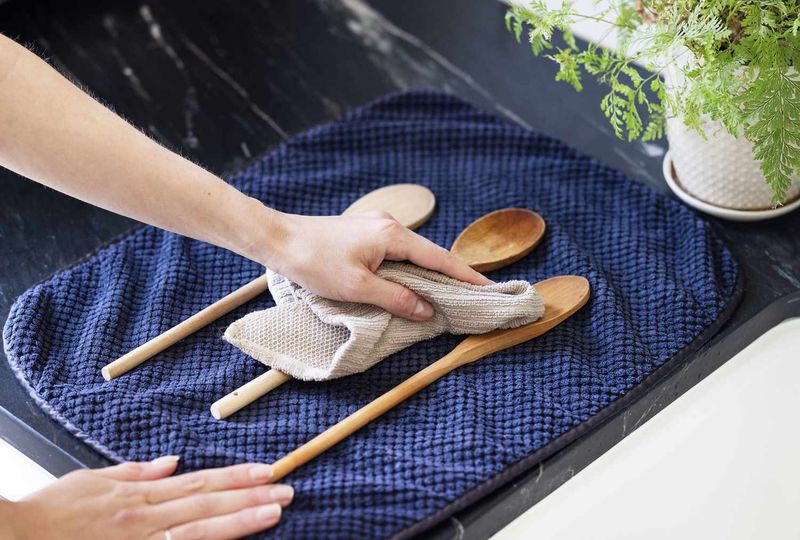
A gentle wash is best. Use warm water and mild soap to clean your utensils promptly after each use. Avoid soaking them, as prolonged exposure to water can lead to warping or cracking. Instead, wash quickly and thoroughly.
Once clean, dry them with a soft towel. Leaving them to air dry could cause water spots or other damage. This method ensures your utensils maintain their natural beauty and finish. Remember, a little care goes a long way in preserving your favorite kitchen tools.
Did you know? Wooden utensils have been used for centuries due to their natural antibacterial properties.
Use Vinegar Solution for Deep Cleaning
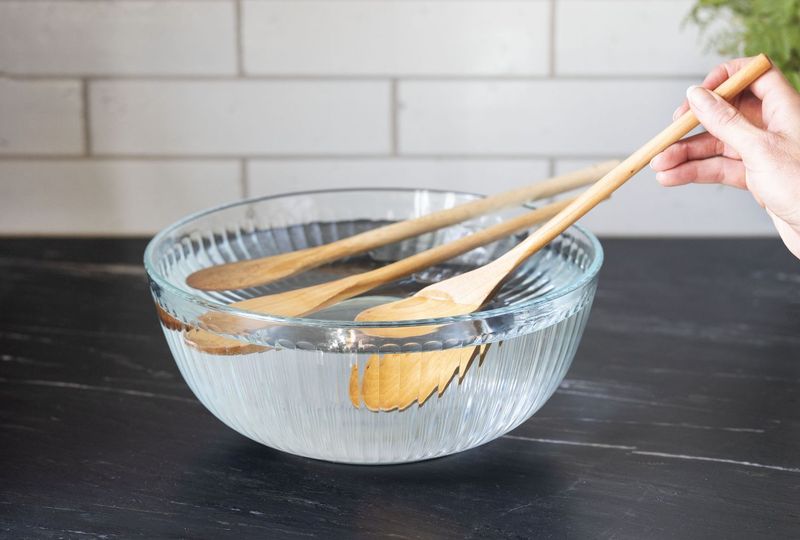
For a deeper clean, vinegar is your ally. Mix equal parts of vinegar and water for a natural cleansing solution. This combination effectively removes odors and kills bacteria.
Soak the utensils briefly, about five minutes, before rinsing thoroughly. This method is excellent for maintaining hygiene without harsh chemicals. After rinsing, always dry immediately with a towel.
Vinegar’s acidic nature is not only a powerful cleanser but also eco-friendly, making it a preferred choice for many homemakers. An occasional vinegar bath keeps utensils looking and smelling fresh.
Lemon and Baking Soda Scrub
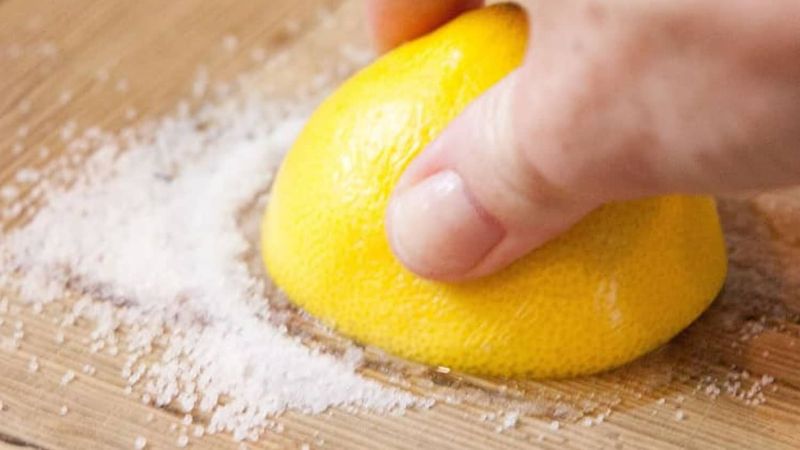
Embrace nature’s cleansers! A lemon and baking soda scrub can work wonders. Sprinkle baking soda over the wood and use half a lemon to scrub gently. This natural method effectively lifts stains and eliminates odors.
The mild abrasiveness of baking soda, combined with lemon’s acidity, cleans and refreshes without damage. Rinse well and pat dry.
A fun fact: lemons have been used in cleaning rituals across cultures for their fresh scent and antibacterial properties. This method leaves your utensils spotless and fragrant.
Periodic Oil Conditioning
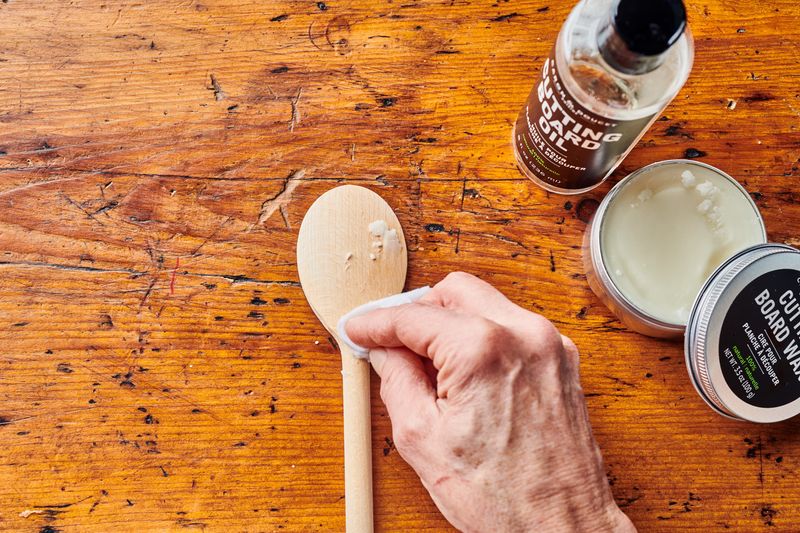
Conditioning is key. Every month or so, apply a food-safe oil, like mineral or coconut oil, to maintain luster and prevent drying out. Pour a small amount onto a cloth and rub it in the direction of the grain.
This simple step revitalizes the wood, keeping it supple and less prone to cracks. Let the oil soak in for a few hours or overnight, then wipe off any excess.
Oil conditioning not only preserves appearance but also enhances the utensil’s longevity. Make it a routine for best results.
Avoid Dishwasher Use
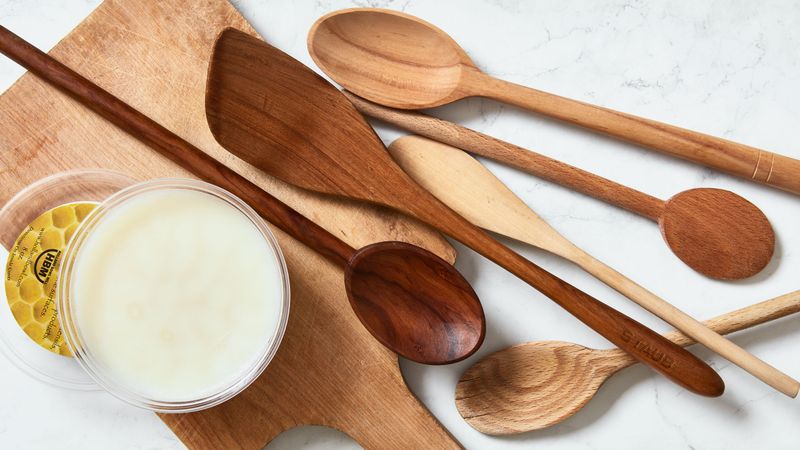
Dishwashers are tempting, but they are harsh on wooden utensils. The intense heat and water pressure can cause irreversible damage, leading to cracks and splits.
Always opt for hand washing instead. Dishwashers can strip the natural oils, leaving utensils dry and brittle. By avoiding them, you extend your tools’ life significantly.
Did you know? Ancient civilizations hand washed their wooden tools, recognizing their delicate nature. Keep that tradition alive for your utensils’ sake.
Microwave Drying Mistake
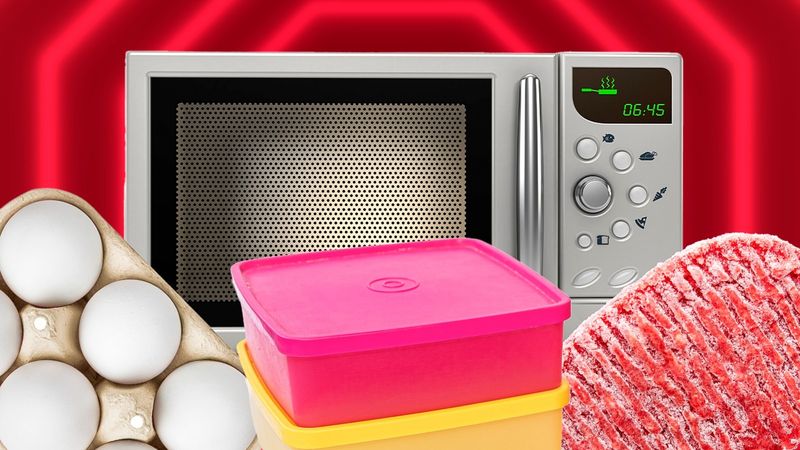
Microwaves are no friend. Attempting to dry utensils in a microwave can cause them to overheat and crack. The uneven heat distribution is particularly harmful.
Instead, dry them with a towel or air dry on a rack. Microwaving might seem quick, but it risks permanent damage.
This wrong way highlights the importance of patience in utensil care. Avoid shortcuts for long-lasting results.
Leaving Soaked Overnight
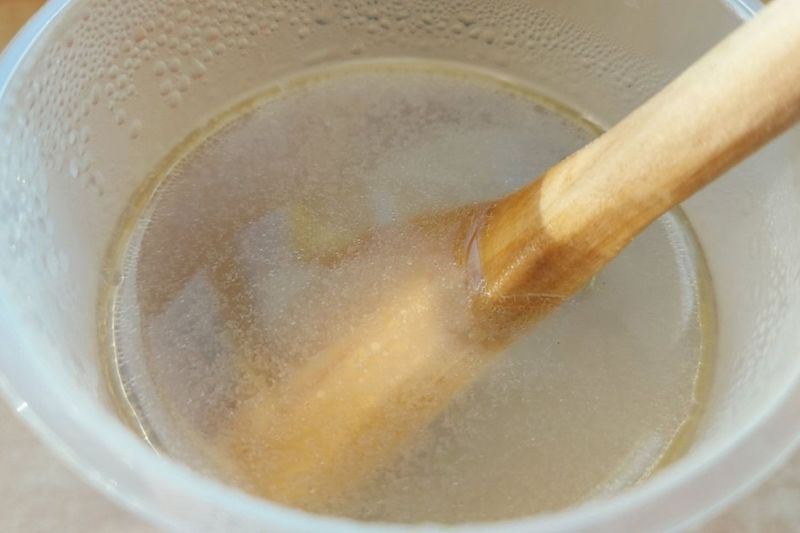
Beware of the overnight soak. Leaving wooden utensils submerged can lead to swelling and eventually cracking. Wood absorbs moisture, weakening its structure.
Quick washes and immediate drying are preferred. This wrong practice is a common oversight but easily avoidable.
Proper care ensures your wooden tools remain reliable and intact for years. Remember, wood loves to be dry.
Using Harsh Chemicals
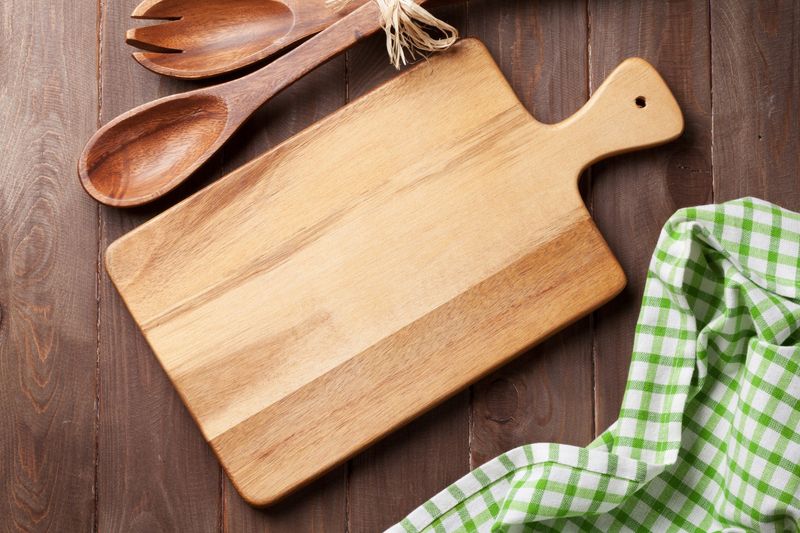
Harsh chemicals are too aggressive. Bleach and other strong cleaners can strip natural oils and compromise the wood’s integrity.
Opt for natural alternatives like vinegar or baking soda for safer cleaning. Chemicals leave residues that could be harmful if ingested.
Wooden utensils deserve gentle care. The wrong chemical can degrade their quality swiftly. Choose wisely to protect your kitchen essentials.
Leave a comment